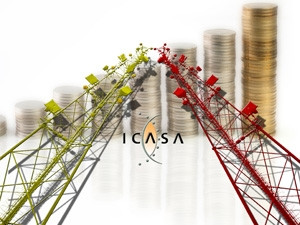
The Right2Know (R2K) Campaign is gearing up to hold a National Day of Action for the Right to Communicate, on Saturday, 18 October.
The organisation will hold marches in Johannesburg and Cape Town, as well as a mass meeting in Durban, to highlight issues such as press freedom and access to telecommunications.
According to the R2K Campaign, the Day of Action will be used to campaign for lower costs of communications in SA, as well as the democratisation of the local communications landscape, via free and open set-top box (STB) technology for broadcast digital migration.
R2K national coordinator Murray Hunter says the local telecommunications sector has traditionally been weakly regulated. "We have a situation where the biggest players are setting the rules. We are glad to see that ICASA [the Independent Communications Authority of SA] is attempting to create competition in earnest through lower interconnection rates, but we also call on service providers to drastically reduce their prices."
Hunter says while it is encouraging to see ICASA's recent attempts to bring down telecoms costs have prompted a price war among local players, more needs to be done. "We view access to communication as a basic human right, which has the potential to bring huge benefits to the SA economy."
R2K says government has handed the "democratising power of telecommunications to unaccountable, profit-making corporations like MTN, Vodacom, Cell C, and Telkom. We pay some of the highest costs in the world for airtime and data." The group points out that SA ranks 128th of 144 countries in prepaid mobile rates, while local mobile companies have profit margins as high as 30% - double the global average.
Internet access
Furthermore, the group argues SA's migration from analogue to digital television will determine the communication landscape "for years to come", adding it has the potential to ensure access to an increased number of TV channels, as well as free up valuable spectrum that can ensure greater access to high-speed Internet.
Hunter explains the organisation is calling for STBs to be based on free and open technology that brings down the high estimated cost of the devices, or else places the country at risk of entrenching existing communication inequalities.
He also notes free and open technology would bring many socio-economic benefits the current closed system, proposed by government, would miss out on. R2K explains the rollout of STBs would essentially put a basic computer in every home. "Government want these to be a 'dumb box' with only one piece of proprietary software that allows the passive reception of television.
"We demand the STB be a 'smart box' that remains useful even when users buy new digital television sets. The STB must use a free/open source operating system and include sufficient connection ports to become part of a low-cost Internet access point."
Share